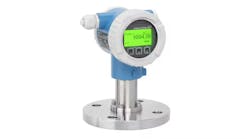The Environmental Protection Agency (www.epa.gov) issued a final rule today that assures facilities producing ethanol for human consumption, industrial use, or fuel are treated equally under Clean Air Act permitting requirements. Ethanol can be used to meet the requirements of the Renewable Fuels Standard Program, which is designed to reduce dependence on foreign oil by doubling the use of vehicle fuels from American crops by 2012.
Ethanol is produced at corn milling facilities for use as fuel, in industrial processes, or for human consumption. While the processes are similar, these facilities have historically been treated differently under Clean Air Act permitting programs.
This final rule establishes the same emissions thresholds for new facilities that produce ethanol using a feedstock such as corn or sugar beets regardless of the product produced — 250 tons per year for the Prevention of Significant Deterioration (PSD) permitting program. The thresholds for the nonattainment NSR and Title V programs will remain at current levels.
The final rule also will no longer require facilities producing ethanol for fuel or industrial purposes to count emissions of criteria pollutants that do not come from process stacks or vents when determining if they meet or exceed the emissions thresholds for the Clean Air Act operating permits, nonattainment NSR, or PSD programs.
For more information about this final rule, visit www.epa.gov/nsr/actions.html.

